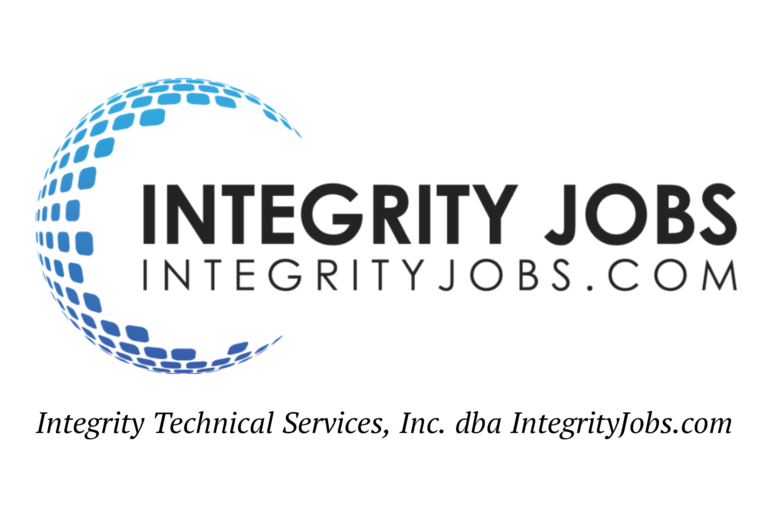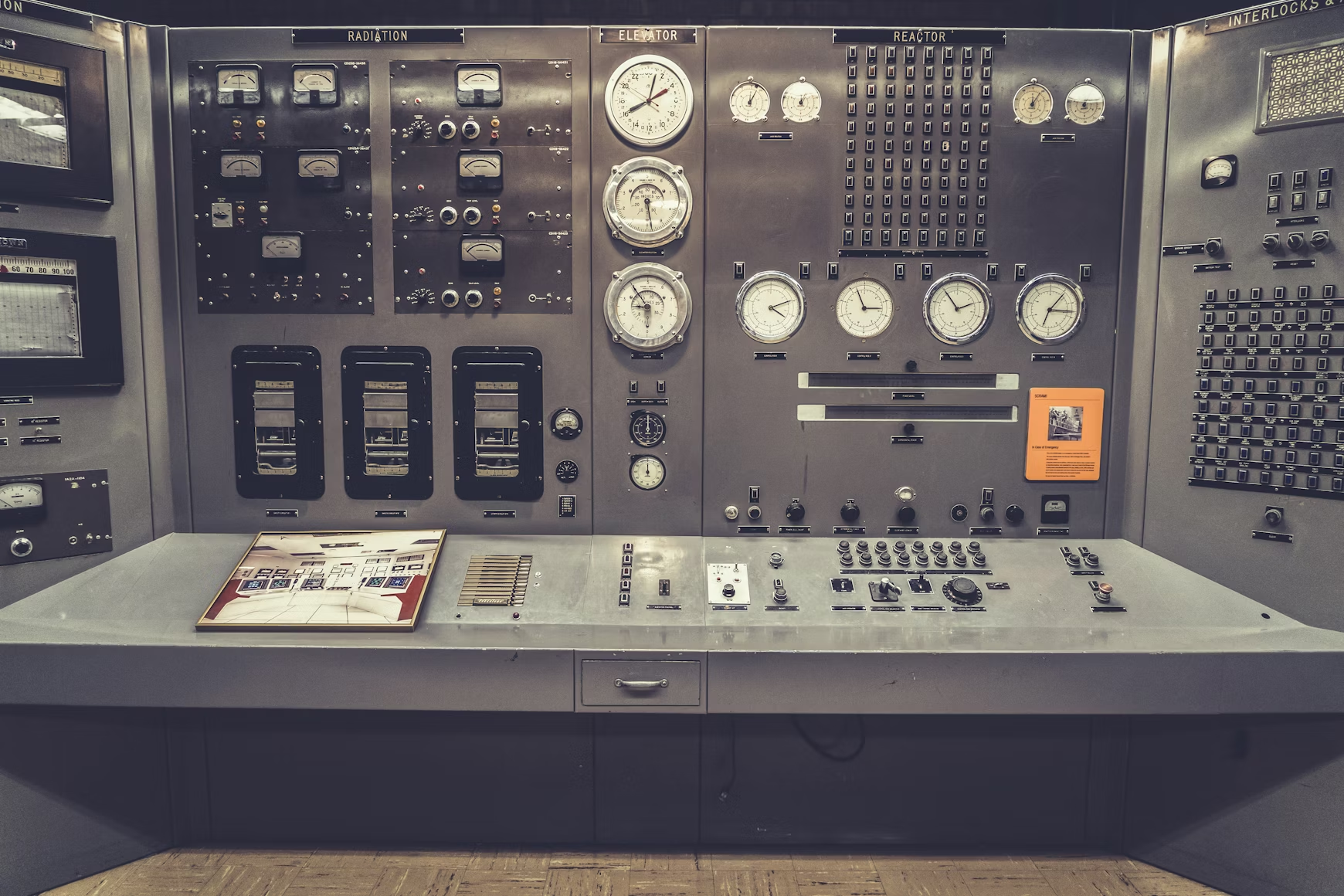Instrumentation and control engineering jobs give you the chance to work on systems that keep industries running safely and efficiently. These are roles where precision, safety, and automation intersect, with clear paths from entry-level projects to senior leadership.
With Integrity Jobs, you’ll get practical coaching, quick feedback, and routes into direct hire, temp-to-hire, and contract roles. We match your strengths to real openings, so you can move faster and feel confident in each step.
Inside, you’ll see step-by-step actions, resume examples, market trends, and answers to common FAQs. You’ll also get next moves to apply smarter, prepare for interviews, and choose the pathway that fits you best.
Overview Of Instrumentation And Control Engineering Jobs
You can find steady demand for instrumentation and control engineering jobs in industries that rely on automation, safety, and efficiency. These roles focus on designing and maintaining systems that monitor and control machinery, ensuring operations run smoothly and reliably. Your work reduces downtime and improves product quality.
What’s Instrumentation And Control Engineering
Instrumentation and control engineering deals with the design and management of systems that measure, monitor, and regulate processes. You work with sensors, controllers, and instruments that help keep machines and production lines running at the right speed, pressure, or temperature. This field combines electrical, mechanical, and computer knowledge.
You often use software tools to program controllers and integrate them with equipment. The goal is to ensure accurate data collection and precise control of industrial processes. You may hear this area called I&C engineering. It plays a key role in industries where even small errors can cause safety risks or production losses.
By working in this field, you help companies improve efficiency and maintain safe operations. Your work directly impacts throughput, quality, and compliance. Instrumentation And Control Engineering Jobs reward both rigorous thinking and hands-on problem-solving.
Core Responsibilities In The Field
As an instrumentation and control engineer, you handle both design and maintenance tasks. You may create new control systems, install instruments, or upgrade older equipment. A large part of your role involves testing and calibration to make sure systems deliver accurate results.
Your daily work often includes:
- Designing control strategies for machinery and processes
- Configuring controllers and sensors to meet performance standards
- Troubleshooting issues in electrical or automation systems
- Running quality checks to confirm system stability
You also collaborate with other engineers, technicians, and operators. Communication skills matter because you explain technical details and provide solutions when problems arise. In many cases, you balance cost, safety, and efficiency when making decisions.
Key Industries Employing Professionals
You can find instrumentation and control engineering jobs across many sectors. Manufacturing plants, oil and gas facilities, power generation, and chemical processing are some of the largest employers. These industries depend on automated systems to handle complex, large-scale operations.
In addition, aerospace, water treatment, and pharmaceuticals also hire professionals in this area. Each industry requires precise monitoring of equipment and processes to meet safety standards and production goals. Job opportunities range from entry-level technician roles to senior engineering positions.
Staffing firms often connect candidates with employers in these fields, offering pathways such as direct hire, temp-to-hire, or project-based roles. You can choose the path that fits your goals.
Essential Skills For Instrumentation And Control Engineers
Success in instrumentation and control engineering depends on a mix of technical knowledge, problem-solving ability, and strong communication. You need to understand how systems work, fix issues quickly, and explain solutions clearly to others.
Technical Competencies
You need a solid foundation in mathematics, physics, and core engineering principles. These subjects help you understand how systems behave and how to design effective solutions. Knowledge of instrumentation devices, control systems, and automation tools is key.
Many jobs require experience with PLCs, SCADA systems, and HMIs. These tools allow you to monitor and control industrial processes. Practical skills also matter. Being able to read technical drawings, calibrate instruments, and troubleshoot equipment helps you stand out.
Consider this list of common technical areas:
- Process control systems
- Electrical and electronic circuits
- Programming for automation
- Data collection and analysis tools
If you’re just starting out, working closely with technicians can give you valuable field experience. Organizations can also connect you with roles that match your skills and help you grow in these areas.
Analytical And Problem-Solving Skills
You will often face complex problems that require careful analysis. Strong critical thinking helps you identify the root cause of issues instead of just treating symptoms. For example, if a control system fails, you trace signals, check settings, and test equipment step by step.
This structured approach saves time and prevents costly mistakes. Attention to detail is another key skill. Even a small error in calibration or coding can disrupt operations. Employers look for engineers who can spot issues quickly and provide reliable fixes.
It also helps to stay comfortable with data. Modern systems produce large amounts of information, and you need to interpret that data to improve performance or prevent downtime. Your insights keep processes stable.
Communication And Teamwork Abilities
Instrumentation and control engineers rarely work alone. You often collaborate with technicians, operators, and other engineers. Clear communication ensures everyone understands the system’s requirements and solutions.
Writing skills are just as important as speaking skills. You may prepare reports, create documentation, or explain technical details to non-engineers. Keeping your language simple and direct makes your work more effective.
Teamwork also matters in high-pressure environments, such as troubleshooting during production. You must listen to others, share your input, and coordinate tasks. Employers appreciate engineers who bridge the gap between technical work and team collaboration.
Popular Job Roles In Instrumentation And Control Engineering
You can find steady demand for professionals who design, install, and maintain systems that keep industries running safely and efficiently. These roles often involve hands-on problem solving, technical design, and working with advanced equipment across fields like manufacturing, energy, and process control.
Control Systems Engineer
As a Control Systems Engineer, you focus on designing and maintaining automated systems that regulate processes in industries such as oil and gas, power generation, and manufacturing. Your work ensures machines operate within set parameters, reducing errors and improving efficiency.
You often use tools like PLCs (Programmable Logic Controllers) and SCADA (Supervisory Control and Data Acquisition) systems to monitor and adjust operations. These tools help you manage temperature, pressure, flow, and other variables in real time.
Key tasks include:
- Writing and testing control logic
- Troubleshooting system faults
- Coordinating with mechanical and electrical engineers
- Ensuring safety and compliance standards
Employers value strong problem-solving skills and the ability to adapt systems to new technologies. If you’re starting out, you may begin as a junior engineer or technician before moving into project leadership roles.
Instrumentation Engineer
An Instrumentation Engineer specializes in designing, calibrating, and maintaining devices that measure and control physical quantities like pressure, flow, and temperature. These instruments are essential for industries that depend on precise data to keep operations safe and efficient.
Your responsibilities may include developing new measurement systems, upgrading existing equipment, and ensuring accuracy through testing and calibration. You’ll often work closely with plant operators, maintenance teams, and project engineers.
Important skills include:
- Strong knowledge of sensors and transducers
- Ability to interpret technical drawings and specifications
- Hands-on troubleshooting of instruments in the field
This role is critical in sectors such as aerospace, chemical processing, and energy production. If you’re seeking opportunities in this field, you can target employers looking for skilled professionals in instrumentation.
Automation Engineer
As an Automation Engineer, you design and implement systems that reduce manual intervention and improve consistency in industrial processes. Your work often involves robotics, advanced control systems, and integration of new technologies into existing production lines.
You’ll likely program and configure automation hardware, test new systems, and train operators on how to use them. A strong background in programming languages like Ladder Logic, Python, or C is often required.
Key areas of focus include:
- Improving production speed and quality
- Reducing downtime through predictive maintenance
- Integrating digital technologies such as IoT and machine learning
This career path offers opportunities in pharmaceuticals, automotive, and electronics manufacturing, where automation plays a central role.
Educational Requirements And Certifications
To work in instrumentation and control engineering, you need a solid technical foundation, recognized credentials, and a willingness to keep your skills up to date. Employers look for both formal education and proof of specialized knowledge through certifications and ongoing training.
Relevant Degrees And Coursework
Most employers expect you to earn a bachelor’s degree in a related field. Common majors include electrical engineering, mechanical engineering, chemical engineering, or control systems engineering. Some universities also offer specific programs in instrumentation and control engineering.
During your studies, focus on coursework in:
- Process control systems
- Electronics and circuits
- Automation and robotics
- Computer programming (such as C, Python, or MATLAB)
- Engineering mathematics
Laboratory classes and design projects help you apply theory to real-world systems. Internships or co-op programs can give you practical experience, making you more competitive when applying for jobs. If you already hold a degree in a related field, you may still qualify by taking additional courses in instrumentation or control systems.
Professional Certifications
Certifications show employers that you meet industry standards and can handle specialized tasks. Two widely recognized options are:
- Certified Control Systems Technician (CCST) – Focuses on practical skills for maintaining and troubleshooting control systems.
- NICET Certification – A four-level program for engineering technologists, covering instrumentation and control knowledge in depth.
Other valuable certifications include ISA Certified Automation Professional (CAP) and PLC programming certificates from industry vendors. These can give you an advantage when applying for advanced or leadership roles. Employers may also encourage you to pursue certifications over time rather than expecting you to have them on day one.
Continuing Education Opportunities
Technology changes quickly in this field, so you need to keep learning after you start working. Many engineers take short courses, online workshops, or vendor training to stay current with new tools and systems.
Professional groups such as the International Society of Automation (ISA) offer seminars and continuing education credits. Some engineers also pursue a master’s degree in control systems, automation, or a related specialty, opening doors to research, management, or higher-paying jobs.
You might also benefit from employer-sponsored training programs. Companies often invest in courses for new equipment or software. These roles can include ongoing training as part of the job, giving you a chance to grow while you work.
Career Pathways And Advancement Opportunities
You can build a strong career in instrumentation and control engineering by moving through clear stages of growth. Each stage brings new responsibilities, skill requirements, and opportunities to specialize or take on leadership roles.
Entry-Level Positions
At the start of your career, you typically work as a junior instrumentation engineer, controls technician, or automation support engineer. These roles focus on hands-on tasks like installing sensors, calibrating instruments, and troubleshooting control systems.
You often work under senior engineers while learning industry standards and safety practices. Many entry-level jobs are found in manufacturing, energy, chemical plants, and utilities, where process control is critical. Temporary or contract roles can help you gain experience quickly.
Mid-Career Progression
As you gain 3–7 years of experience, you can move into positions such as instrumentation engineer, controls engineer, or automation specialist. In these roles, you take on more responsibility for designing systems, leading small projects, and mentoring junior staff.
You may work on process optimization, integrating new technologies, or improving system reliability. Employers often expect you to handle project budgets, documentation, and compliance with industry regulations. Direct-hire roles become more common at this level, offering stability and long-term growth.
Leadership And Specialized Roles
With 10+ years of experience, you may advance into senior engineer, project manager, or engineering manager positions. These roles focus on leading teams, managing large-scale projects, and making strategic decisions about technology and operations.
Some professionals move into highly specialized areas, such as safety systems engineering, advanced control algorithms, or instrumentation design for complex industries like aerospace or pharmaceuticals. If you prefer technical depth over management, specialization can make you a sought-after expert.
Current Job Market Trends
Instrumentation and control engineering continues to grow steadily, with demand supported by industries like manufacturing, energy, and automation. New technologies such as AI and IIoT are reshaping the field, while certain regions show stronger hiring activity due to concentrated industrial hubs.
Demand For Instrumentation And Control Engineers
You can expect steady demand for instrumentation and control engineers —BLS projects 7% growth for Electrical & Electronics Engineers from 2024–2034—tied to the need for automation in industries such as oil and gas, pharmaceuticals, and renewable energy.
Companies are willing to hire candidates who can adapt quickly to evolving technologies and industry standards. This can help you access direct hire, temp-to-hire, and contract roles that match your career goals.
Emerging Technologies Impacting The Field
New technologies are changing the way you work as an engineer. Artificial Intelligence (AI) and the Industrial Internet of Things (IIoT) are now common in process control systems. Engineers who understand these tools can manage smarter, more efficient operations.
Automation is another key driver. Facilities rely heavily on automated systems, which increases the need for skilled engineers who can program, monitor, and maintain them. Wireless instrumentation, cloud-based monitoring, and cybersecurity awareness are also becoming standard.
Geographical Hotspots For Employment
Job opportunities vary by location, with certain regions offering more openings due to industrial activity. In the United States, states with strong manufacturing and energy sectors—like Texas, Ohio, and California—show higher demand.
In Canada, provinces with oil, gas, and power generation industries provide consistent opportunities. Globally, countries investing in smart factories and renewable energy infrastructure are creating new markets for these roles.
Salary Expectations And Compensation Packages
Instrumentation and control engineering offers steady pay with room for growth. Your earnings depend on your experience, industry, and location, while benefits and incentives add extra value to the total package.
Average Salaries By Experience Level
Pay varies widely depending on where you are in your career. Entry-level engineers often earn between $55,000 and $65,000 per year, with hourly rates averaging around $27–$30. With a few years of experience, salaries increase to the $80,000–$95,000 range.
Senior engineers and specialists can reach $100,000 to $120,000+, especially in industries like oil and gas, aerospace, or advanced manufacturing. These positions often include leadership duties, complex project oversight, and higher expectations for technical expertise.
Benefits And Incentives
In addition to salary, most employers offer a benefits package that adds significant value. Common benefits include:
- Health, dental, and vision insurance
- Retirement contributions (401k or pension plans)
- Paid time off and holidays
- Professional development support
Some employers also provide annual bonuses, profit-sharing, or performance incentives tied to project success. Flexible work arrangements, such as hybrid schedules, are becoming more common as well. Contract-to-hire roles can let you test a workplace before committing long-term.
Factors Influencing Compensation
Several factors shape what you can expect to earn. Industry sector is one of the biggest drivers: engineers in energy, aerospace, or high-tech manufacturing often earn more than those in smaller-scale production or municipal roles.
Geographic location also matters. Salaries in large metro areas or regions with strong demand tend to be higher. Education and certifications can boost your pay as well, especially in automation, safety systems, or project management.
Job Search Strategies And Resources
Finding the right role in instrumentation and control engineering takes more than just sending out applications. You need strong application materials, reliable job search tools, and professional connections that open doors to new opportunities.
Effective Resume And Cover Letter Tips
Start with a resume that highlights your technical skills and project experience. Focus on control systems, instrumentation design, PLC programming, and troubleshooting since these are common requirements. Keep your resume concise.
Tailor each application by matching your skills with the job posting. If a position emphasizes automation systems, list specific tools or software you’ve used. Your cover letter should show how your background connects to the company’s needs with short, direct language.
Top Job Boards And Recruitment Agencies
Engineering jobs appear on many platforms, but not all are equally effective. Use filters for location, job title, and industry to narrow results. Specialized sites for engineering often provide more targeted roles.
Recent listings show thousands of instrumentation and control engineering jobs across the U.S., including positions in energy, automation, and manufacturing. Recruitment agencies can also help you connect with employers who don’t always post jobs publicly.
Networking In The Engineering Community
Networking remains one of the most effective ways to find a job. Start by connecting with peers, professors, or past coworkers. Attend professional events, workshops, or job fairs where employers and recruiters gather.
Online communities also matter. Join engineering groups to share your expertise and stay updated on industry trends. Even a short conversation can lead to an interview later.
Challenges And Opportunities In The Profession
As an instrumentation and control engineer, you face both technical hurdles and promising career paths. The work requires balancing accuracy, safety, and efficiency while adapting to new technologies that continue to reshape the field.
Common Workplace Challenges
You often deal with calibration errors, sensor faults, and communication issues between devices. Even small mistakes can cause downtime or safety risks, so attention to detail matters. Many plants still use older equipment, which means you may need to integrate modern tools with legacy infrastructure.
Workplace pressure is also common. You may need to respond quickly when systems fail under strict deadlines. Compliance with safety and industry standards adds extra responsibility. Training, hands-on experience, and continuous learning help you stay ready.
Opportunities For Innovation
You have many chances to apply creative solutions. The growth of automation, robotics, and IoT has opened new ways to monitor and control processes with higher accuracy. Smart sensors enable real-time data collection that improves efficiency and reduces waste.
You can also use predictive maintenance to help plants avoid costly breakdowns. Industries such as manufacturing, aerospace, and energy rely on engineers who can design systems that are both reliable and adaptable.
Future Outlook For The Industry
The demand for instrumentation and control engineers will continue to grow as industries automate more processes. Companies need professionals who can bridge the gap between traditional systems and advanced digital platforms.
Key areas of growth include renewable energy, smart manufacturing, and healthcare technology. Job seekers who stay current with programming, data analysis, and system integration will have the best opportunities.
Ready To Step Into Control
You’ve seen how core skills, certifications, and experience drive impact on automated operations. Focus your search on industries using safety-critical systems and plan steps from entry to leadership. Target roles that fit your strengths, build projects, and measure results you can cite in interviews.
With Integrity Jobs, you get coaching, curated leads, and routes into direct hire, temp-to-hire, or contract. We help you translate projects into metrics, align pay expectations, and prepare for plant-floor realities. You stay in control of choices while we streamline outreach and feedback from hiring teams.
Start applying to instrumentation and control engineering jobs that match your tools and industries. Sharpen your resume, book interviews, and set a learning plan you can execute this quarter. Take your next step now: View open jobs or contact an Account Manager.
Frequently Asked Questions
Instrumentation and control engineering jobs involve technical work, career growth factors, and salary considerations. Your opportunities depend on your skills, location, and preparation, with options ranging from entry-level roles to advanced positions.
What are the typical responsibilities of an instrumentation and control engineer?
You design, install, test, and maintain systems that measure and control industrial processes. Common tasks include calibrating instruments, troubleshooting equipment, and ensuring compliance with safety standards. You may also work with PLCs, DCS, and SCADA systems.
How does location impact the availability of instrumentation and control engineering jobs?
Job demand often depends on local industries. Areas with strong manufacturing, oil and gas, or power generation sectors usually have more openings. Larger cities and industrial hubs often provide a wider range of roles.
What are the remote work opportunities for instrumentation and control engineers?
Most roles require on-site work because of hands-on equipment and system monitoring. However, system design, programming, or data analysis can be done remotely. Hybrid roles are becoming more common.
What is the entry-level salary range for instrumentation and control engineering jobs?
Entry-level salaries in the United States typically range from $60,000 to $75,000 per year. Pay varies by region, company size, and industry. Contract or temp-to-hire positions may start slightly lower but provide valuable experience.
How can fresh graduates prepare for a career in instrumentation and control engineering?
Strengthen your chances by learning PLC programming, sensor calibration, and process control basics. Internships and project work during school help you stand out.
What factors contribute to the earning potential of an instrumentation and control engineer?
Your salary depends on your years of experience, certifications, and the industry you work in. Specialized knowledge in automation, safety systems, or advanced control technologies can increase your value. Location also plays a role.




